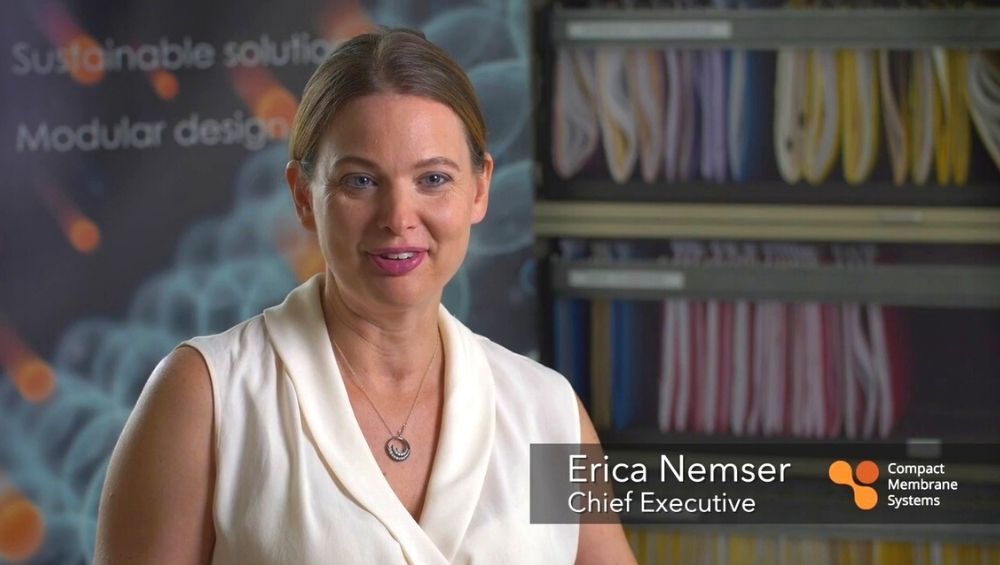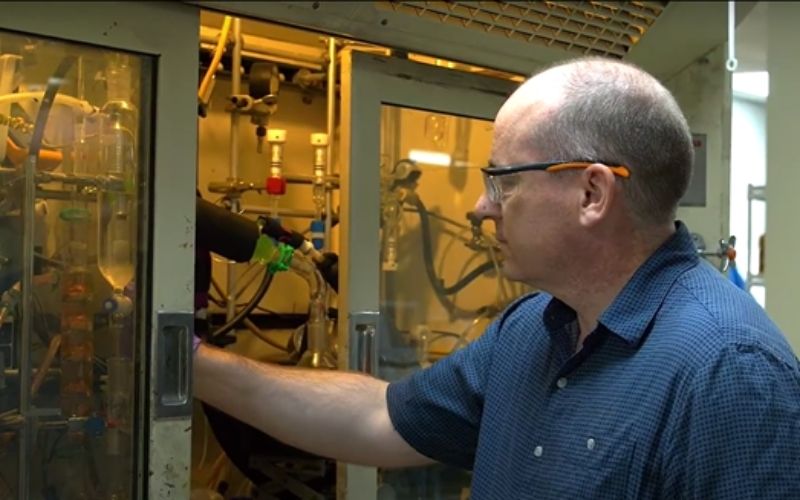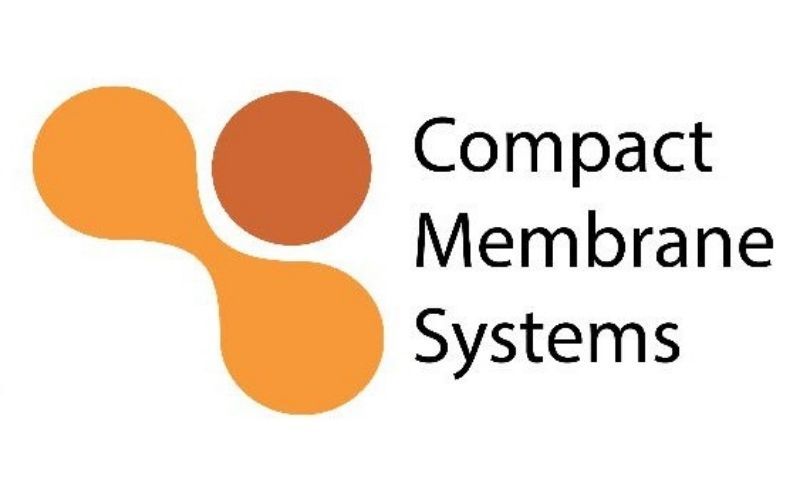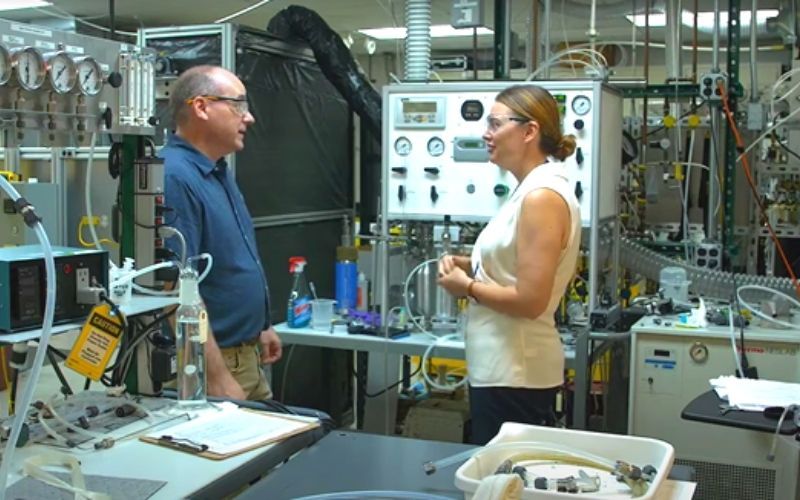Delaware’s Compact Membrane Systems Uses Clean Tech to Help Save the Planet, One Membrane Module at a Time

October 29, 2021 –
Delaware chemtech Compact Membrane Systems (CMS) is perfecting a solution that allows farms, landfills and water treatment plants to capture, separate, upgrade and sell their own renewable natural gas products instead of releasing them into the atmosphere.
It’s a meaningful endeavor in a time when nations, industries and individuals worldwide are becoming increasingly aware of — and committed to — the catastrophic impact of global warming and the potential for upgrading biogas to create renewable natural gas as a part of the clean energy transition.
The company’s Optiperm™ product holds the potential to create pipeline-ready gas with a simpler and less expensive process. It targets the separation of methane from carbon dioxide (CO2) with smaller systems than existing membrane solutions. A pilot demonstration of the biogas platform achieved 90% methane purity with a single-stage membrane unit. The membrane modules are now being scaled-up for commercial use.
Related solutions target carbon directly from large sources like utilities and factories. Carbon capture is all about reducing cost in renewable, sustainable and economically viable ways, and chief executive Erica Nemser says CMS is developing real-cost carbon capture through Optiperm™ carbon at $20 a ton.
“Our separation technology gives industries that cannot easily be electrified with solar power a cost-effective pathway to capture carbon without simultaneously bankrupting them, and all of us,” Nemser says. “We are excited to translate our product’s superior technical characteristics into superior economic value for our customers.”
Innovative Research Combined With Industry Know-How
Membranes are thin layers of inert polymer materials fabricated to allow small molecules like water and oxygen to pass through at high rates white retaining larger molecules like oils, additives and solvents. New technology breakthroughs by CMS enable the separation of similarly sized molecules – unleashing a pathway to reduce the energy we use in producing everyday products and reduce the harmful and planet-warming emissions associated with them.
In their Newport, Delaware, labs, CMS combines innovative research with practical industry know-how to deliver modular units with lower energy usage and smaller footprints than existing separation technologies. Their platform works with companies’ standard equipment to capture, separate and upgrade existing biogas streams that would otherwise be flared or released into the atmosphere.
Quite simply, biogas is a combination of methane and CO2 produced from the breakdown of natural materials from human and animal habitation on the globe. Most methane we currently use comes from fossil sources underground. But at the same time, landfills, water treatment plants and farms generate methane that is released into the atmosphere and contribute to the greenhouse effect.
“We should be capturing biogas from the sources we’re generating,” Nemser says.
Methane released into the air is 85 times worse than CO2 in terms of global warming, she explains. Not only does capturing purified methane reduce the amount of CO2 that gets into the atmosphere, it can be put it into the pipeline and used for heating. This displaces the need to tap fossil sources of methane (natural gas) by using a renewable source – hence, renewable natural gas.
Based on everything that climate experts tell us about global warming, we need to keep the temperature increase on Earth no more than 1.5 degrees Celsius to avoid the catastrophic effects of climate change. To address that, it’s important to use more renewables such as solar power and electric vehicles. But, Nemser adds, we must also address ways to decarbonize industry.
“Steel, cement, plastic… we need to find a way not to be contributing CO2 into the world,” she says.
Something We All Need To Do
Nemser believes increased worldwide emphasis on upgrading biogas to create renewable natural gas is a direct result of increased attention on the negative effects on global warming made all the more obvious during the COVID-19 pandemic.
“Over the last year, it has been delightful to see the sea change in attitude towards renewable natural gas, carbon capture and discussion around climate technologies,” she says. “The focus from this being the concern only of large corporations and institutional investors has shifted to help us recognize that this is something we all need to do – not just to talk about doing, but to actively walk down the path of setting policy, putting infrastructure in place and moving technologies forward to address the challenges of our planet. Two years ago, that wasn’t the case.”
No Silver Bullet
In the debate around protecting the environment and saving the planet, Nemser cautions that there is no one silver bullet, but many solutions to get us where we need to go.
“Realistically, we can’t simply say we’ll all switch to driving electric cars and all will be fine. It will take more expansive use of solar power, investment in hydrogen and carbon capture sequestration,” she says.
Nemser credits the fabulous chemistry and chemical engineering talent found in Delaware – from world renowned experts to new graduates – for making her company’s work in energy transition possible. She also applauds Delaware’s business and scientific community for being very welcoming and collaborative, citing a pilot system for olefin separation technology recently hosted and supported at a refinery in Delaware, as well as a next-level demonstration-scale system of Optiperm™ getting underway with a neighboring world-renowned petrochemical company.
The company is now also working on a round of funding that will allow the world to hear about their innovative technical platform that focuses on energy transfer. Delaware’s juncture in the mid-Atlantic may be proving most helpful to CMS in creating pipeline-quality methane.
“It’s a really powerful thing for Delaware to be known as place that generates this kind of innovation for the world,” Nemser says.
Local Footprint, Global Impact
CMS’s target customers are major worldwide corporations that produce physical things: utilities that produce power; chemical plants that make the materials that go into cars, bedding and house paint; cement and steel factories; and even the apartment complexes that want to capture the carbon out of their heating systems.
But in the end, Nemser says, her real customer is the planet and all of the people who live on it.
“At CMS, we’re addressing a significant portion of the solution so people can continue to live meaningful, productive lives in a way that is sustainable for future generations,” she says. “We’re committed to keeping the planet as tuned up as we possibly can, and we look forward to using our local footprint to make a global impact.”
To learn more about Compact Membrane Systems and the Optiperm™ product portfolio, visit https://compactmembrane.com.
Newsletter Sign Up
Stay Up To Date With Delaware


